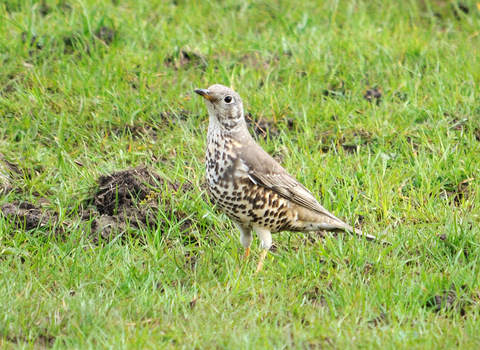
©Amy Lewis
Mistle thrush
The mistle thrush likely got its name from its love of mistletoe - it will defend a berry-laden tree with extreme ferocity! It is larger and paler than the similar song thrush, standing upright and bold.
Scientific name
Turdus viscivorusWhen to see
January to DecemberTop facts
Stats
Length: 27cmWingspan: 45cm
Weight: 130g
Average lifespan: 3 years
Classified in the UK as Red under the Birds of Conservation Concern 5: the Red List for Birds (2021).
